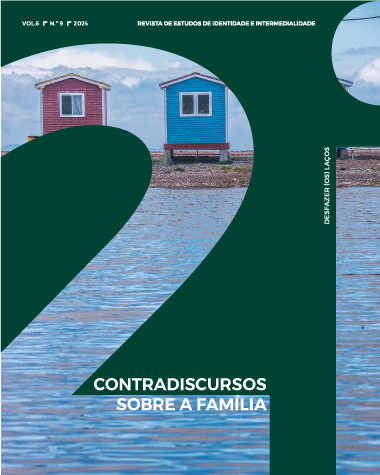Families and forced displacements between Spain and Argentina in women's narratives on migration and exile
Childhood and adolescence around consanguineous prostheses and supervening filiations
DOI:
https://doi.org/10.21814/2i.5608Keywords:
Spain, Spanish Civil War, Argentina, civic-military dictatorship 1976-1983, uprooting, storyAbstract
Narrative offers a field susceptible to allowing the expression of histories of forced displacement through the literary elaboration of a memory of what has been experienced as migration or exile, as well as its consequences. In this type of verbal manifestation, the so-called writings of the self prevail, as they allow the transposition of the experience into an experiential narrative. These textualities, despite focusing on a specific subject who is the protagonist of episodes of estrangement and discomfort, shed light on social groups surrounding the main subject of the narrative. In this regard, families constitute a complex universe, capable of allowing the discovery of important aspects involved in the territorial and identity displacements that result from a family's settling in another country and the effects these have on childhood and adolescence.
We will consider the texts Estuvimos cantando (María García Campelo, 2015), Aurelia quiere oír (María Rosa Iglesias, 2019), La abuela civil española (Andrea Stefanoni, 2014) and one of the stories of Transterradas. El exilio infantil y juvenil como lugar de memoria (Marisa González de Oleaga's, 2019, "En tierra de nadie / Todo lo que era mío").
Downloads
References
Alzate, N. (2019). Infancias migrantes en la narrativa latinoamericana. Tesis de doctorado. Santiago: Pontificia Universidad Católica de Chile, Facultad de Letras.
Assmann, J. (2008). Religión y memoria cultural. Diez estudios. Buenos Aires: Lilmod. Trad.: M. Burello y K. Saban.
Deffis, E. (2010). Figuraciones de lo ominoso. Memoria histórica y novela posdictatorial. Buenos Aires: Biblos.
Díaz Viana, L. (2008). Narración y memoria. Anotaciones para una antropología de la catástrofe. Madrid: UNED.
García Campelo, M. (2015). Estuvimos cantando. Buenos Aires: Zona borde.
González de Oleaga, M. (2019). En tierra de nadie / todo lo que era mío. En M. González de Oleaga, C. Meloni González & C. Saieg Dorín, Transterradas. El exilio infantil y juvenil como lugar de memoria (pp. 21-97). Temperley: Tren en movimiento.
Iglesias, María Rosa (2019). Aurelia quiere oír. Buenos Aires: Paradiso.
Stefanoni, Andrea (2014). La abuela civil española. Buenos Aires: Seix Barral.
Suárez-Orozco, M. & Suárez-Orozco, M. (2003). La infancia de la inmigración. Madrid: Morata.
Villeda Erazo, B. (2023). Enfoque interseccional de las dinámicas de migración transnacional de niños, niñas y adolescentes. En L. Soto Alanís, J. Bracamontes Grajeda & L. Martínez Zertuche (coords.), Migración, familia y desarrollo infantil (pp. 13-29). México: Academia Nacional de Investigación en Trabajo Social.
Downloads
Published
How to Cite
Issue
Section
License
Copyright (c) 2024 Mariela Sánchez

This work is licensed under a Creative Commons Attribution-NonCommercial 4.0 International License.


.jpg)










